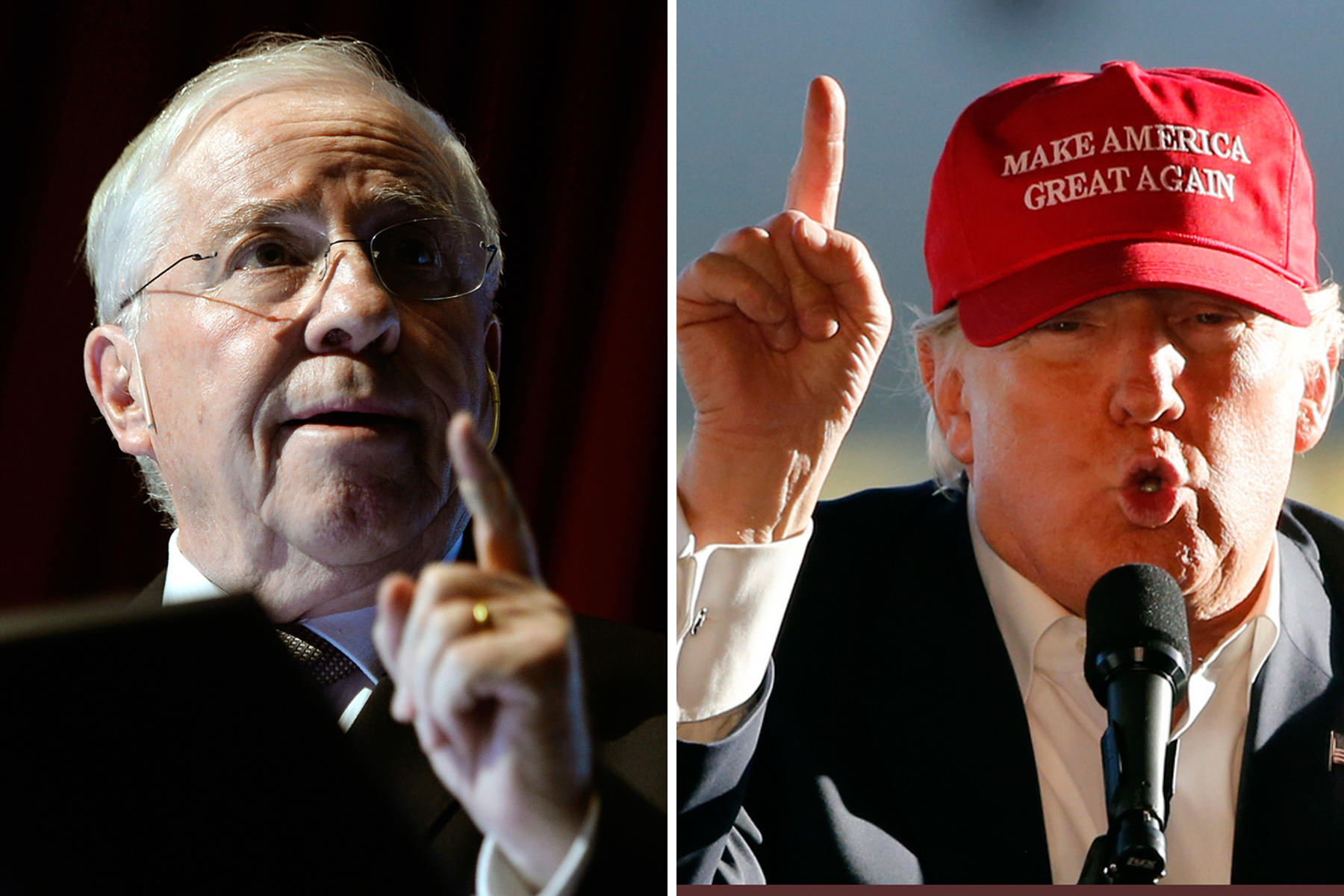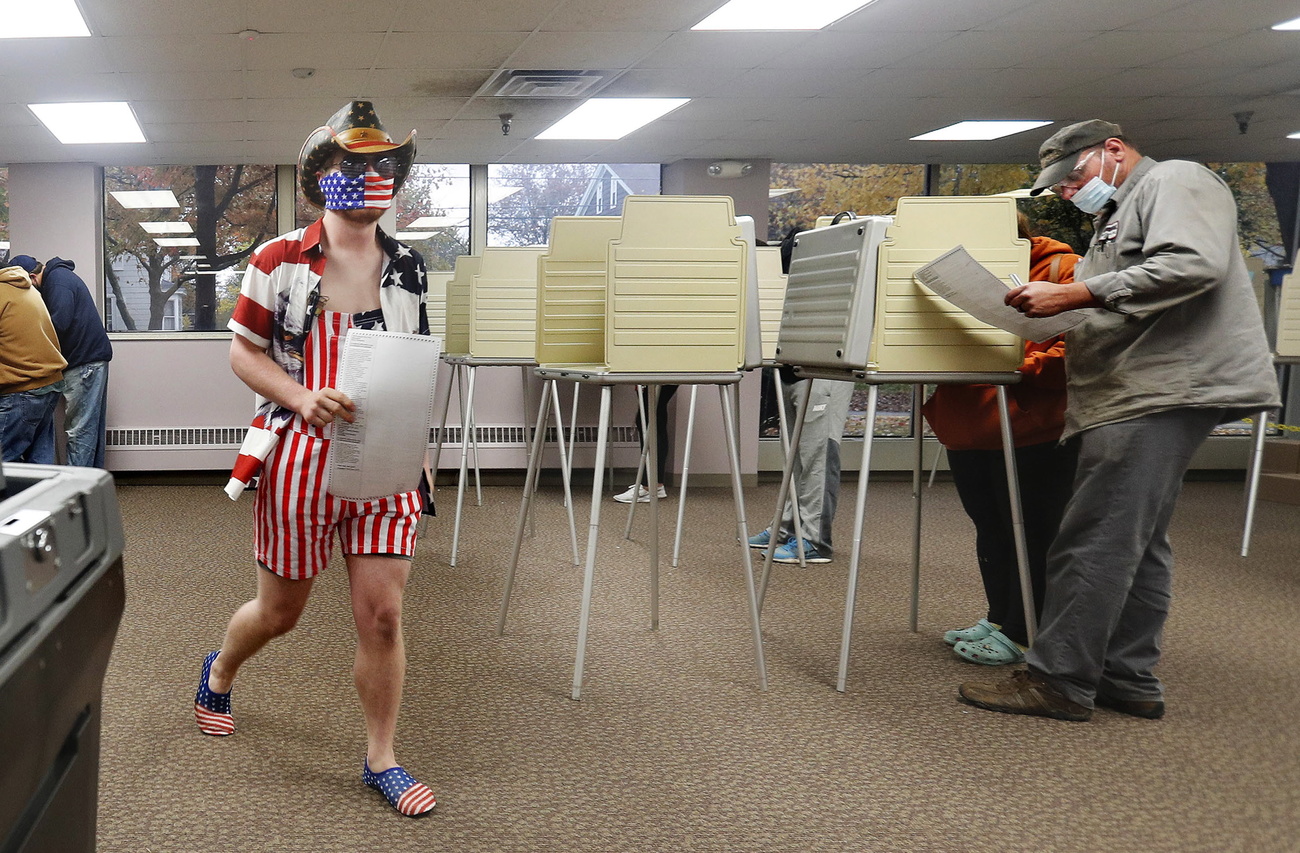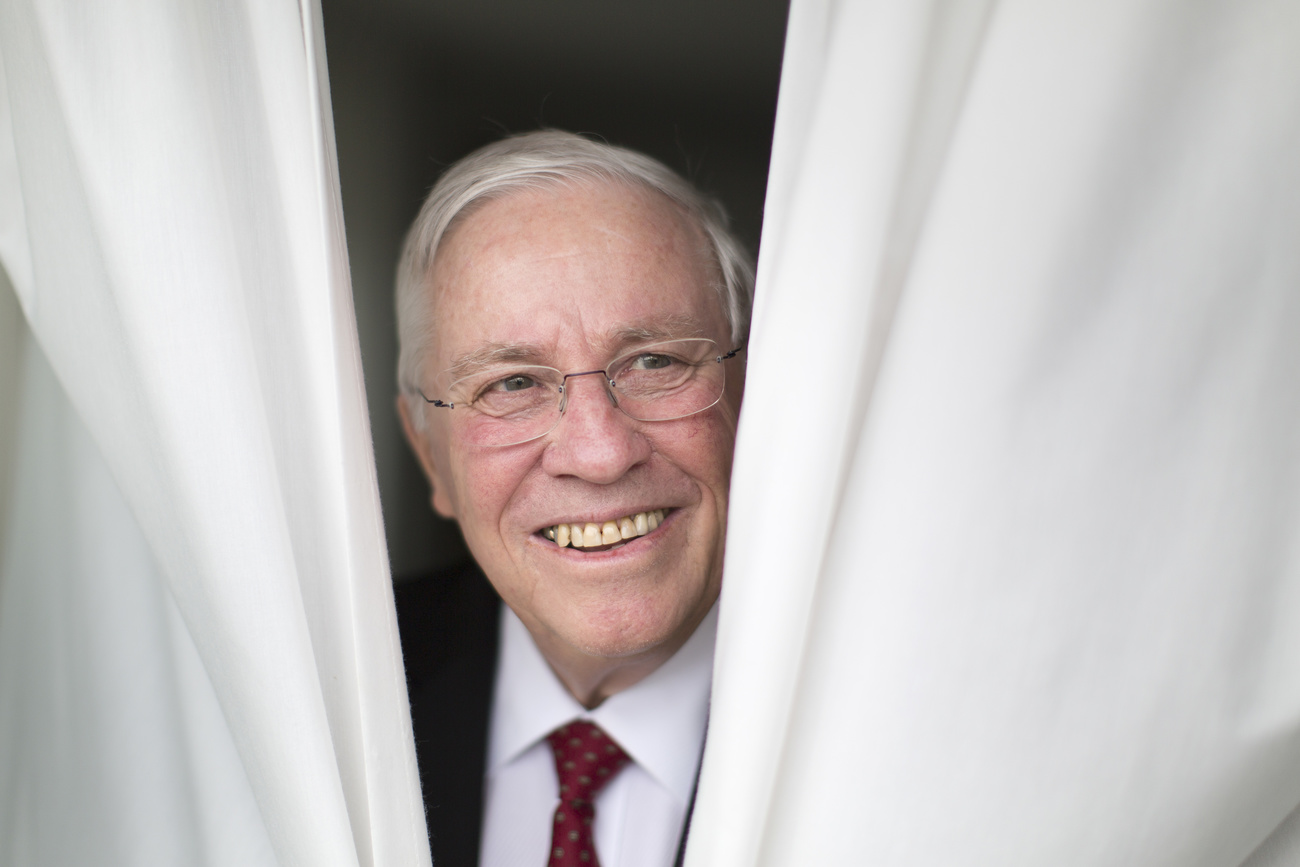Trump, the Republicans, and the Swiss People’s Party – what similarities?

Where is populism currently flourishing, and civility waning? A new study tries to give an answer by looking at the positions of political parties in 170 countries – including the United States and Switzerland, which share some interesting parallels.
In 2016, when Donald Trump was elected US president and the UK voted to leave the European Union, cries were heard around the world such as “globalisation has been called into question” or “undemocratic forces are coming to power”.
Many also saw these developments as signs of something deeper: that “too much input by the people is harmful to representative democracy”. Was it all doomsday talk or were the concerns justified?
Now, just in time to mark the end of Donald Trump’s first term, experts from the Sweden-based research project “Varieties of Democracy” (V-Dem) have analysed almost 3,500 political parties around the world in order to assess the lay of the land.
Two questions were at the forefront of the newly published “V-PartyExternal link” report:
- How strong has populist rhetoric become? To measure this, researchers noted, for example, cases where a divide is drawn between “corrupt elite” and pure “people”;
- How widespread are antidemocratic attitudes? Here, indicators mainly focus around a lack of respect and civility towards political opponents.
Using such measurements meant that the project, based at the University of Gothenburg, was able to rely not on subjective judgements but on observable measurements, which in turn allowed for both international comparison and an analysis of how such trends have developed over the past half-century.
The US case: populism and illiberalism
In the US, the study found, populism has increased, with the Republican Party standing out. Under the Trump Administration, it writes, criticism of dominant elites became standard, while a clear anti-immigration policy also emerged.
Such shifts were less common in the Democratic Party.
Republicans also showed an increasing willingness to flout norms of respect: attacks on the President’s opponents were numerous, while minority rights were only selectively applied.
V-Dem finds that the origin of these trends in fact dates back to 2008, the year the Democrats won the election and the Tea Party movement began their criticisms of the Obama Administration – with the controversial “Obamacare” health reform a particular trigger.
The analysis of Trump’s period in power shows that such populist and illiberal trends have not changed course, but have rather climbed to record levels.
However, the study also clarifies the difference between classic autocratic regimes as seen for example in Hungary and Poland, and the US, where the pluralist nature of the party system is still guaranteed by inbuilt checks and balances.
The Swiss case: more populism, less illiberalism
Three features emerged most strongly from the Swiss data:
- The rightwing Swiss People’s Party stood out most consistently in the analysis;
- Populist trends in Switzerland were rejected at an earlier stage, and more strongly, than in other countries;
- Antidemocratic attitudes were less pronounced among the People’s Party compared with the Republicans in the US.
The decisive period from a Swiss perspective was in the early 1990s, when the government proposed joining the European Economic Area (EEA), the forerunner to the European Union. This opened the floodgates for the rightwing populism that we still see today, and it also gave rise to the People’s Party.
The Swedish researchers note a rather different feature of this party compared to Republicans – a strong appeal to the will of the “people”. In parallel, criticism of the elite – that is, the government and federal administration – has increased. And, like in the US, rhetorical attacks on political opponents have become common, just as the willingness to give a voice to minority groups has shrunk.
Elsewhere on the political spectrum, the populism score of centrist Swiss parties like the Christian Democrats, the Radical-Liberals, and the Liberal Greens has remained low. Leftwing groups such as the Social Democrats and the Greens have a somewhat higher score, but it’s still markedly less than the People’s Party.
In terms of timing, peak populism in Switzerland was seen around the beginning of the last decade – that is, just after the People’s Party and its justice minister, Christoph Blocher, were voted out of government. After this, the party clearly went into opposition mode, which included opposing the system as such. Their position has been weakened – if not essentially changed – since 2015, when more moderate political forces began to have an effect.
Evaluation of the researchers – and the ‘researchees’
Anna Lührmann,External link Vice-director of the V-Dem institute and co-author of the study, says the global trend towards a shift in rightwing politics is unmistakable, including in established democracies. In the US, the change is incarnated by the Republicans, who are becoming more similar to populist and illiberal parties like Fidesz in Hungary or the ruling Law and Justice party in Poland.
In Switzerland, the populist rhetoric of the People’s Party is clearly comparable to that of contemporary Republicans. However, antidemocratic sentiment is less evident than in the US, while the populist trend in Switzerland also seems to have already reached its peak.
What next?
If Donald Trump loses the election, many will surely be tempted to talk about the end of a chapter of history. If he wins, everything seems to point towards a further spread of antidemocratic tendencies and populist rhetoric.
People’s Party figureheads don’t necessarily see it this way, however. Roger Köppel, a parliamentarian and editor of the weekly Weltwoche, has compared Trump to a course of chemotherapy: awful, but necessary.
Köppel even posts tweets in the style of his model: “If Trump loses, the radical left won’t only advance in the US,” he writes. “In Europe and Switzerland, we’ll also see more political correctness, less freedom of opinion, more state, more fake news and more paternalism”.

In compliance with the JTI standards
More: SWI swissinfo.ch certified by the Journalism Trust Initiative










You can find an overview of ongoing debates with our journalists here . Please join us!
If you want to start a conversation about a topic raised in this article or want to report factual errors, email us at english@swissinfo.ch.